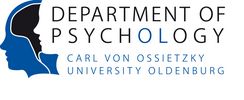The reproducibility and replicability of research findings is a core criterion of science. However, in recent years, large replication projects in psychology, medicine, economics, and other disciplines, have revealed that only 20-50% of all findings can be replicated. This is not surprising when one considers that the current incentive structure favors long publication lists that contain new and surprising findings which, however, often are not robust (e.g., because results are based on very small samples or are statistically "just significant."). In response, many stakeholders have decisively moved towards "Open Science", with the goal to make research more transparent, more reproducible, and more trustworthy. For example, research funders and scientific organizations, such as the DFG and the EU Research Council, push into this direction. In my talk, I will give a quick overview about the history and the current state of the replication/credibility crisis and show why open science must be one answer to this crisis. This has implications for research practices, teaching, hiring decisions, and journal guidelines. Finally, I will outline some current issues and trends.
Kontakt
Direktor
Geschäftsstelle
Open Science
Open Science
In any market, consumers must evaluate the quality of products and decide their willingness to pay based on their evaluation. In science, consumers of new scientific findings must likewise evaluate the strength of the findings and decide their willingness to put stock in them.
From Vazire, S. (2017). Quality uncertainty erodes trust in science. Collabra: Psychology, 3(1).
Evaluation of scientific results’ strength in psychological research has often been difficult in the past due to a lack of relevant information in research articles or high access costs. The ongoing reproducibility crisis in psychological science has made the importance of transparent, self-correcting and trustworthy results and scientific practices undoutedly clear. The Open Science (OS) movement has committed to counteract these challenges by making quality research acccessible to all. OS is based on six core principles that are recommended for transparent research: Open data, open source, open methods, open access, open resources, and open per review.
For a more general overview on the topic, as well as learning material and a list of the current terminology, please refer to, e.g., the German Reproducibility Network.
The Carl von Ossietzky Universität Oldenburg supports open access publications. Moreover, the implementation of Open Science practices is highly valued and supported in the Department of Psychology. The Open Science Interest Group of the department is working on spreading awareness and facilitating the implementation of OS practices at every level of the scientific career. In addition, the DFG funded core centre Tools for Open and Replicable Science develops software solutions and procedures in collaboration between the Neuroimaging Unit and the ANCP-lab.



